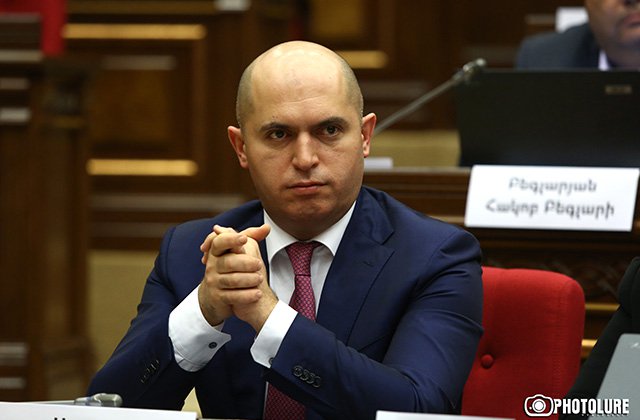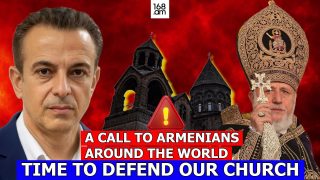EU’s migration problems with other countries should not impact visa liberalization dialogue with Armenia – Armen Ashotyan

Armen Ashotyan, chairman of the foreign relations committee of the parliament, says it is important that between Armenia and the EU the terming about the NK conflict gets ratified under the same text by all EU member states.
During parliamentary debates on ratifying CEPA with the EU, Ashotyan stressed that the resolution about the NK conflict settlement which is in the Armenia-EU agreement is not a favor for Armenia. “The resolution which is in the agreement with the EU isn’t a favor for us, it is simply a tribute to follow their own principles and consistency by the European community that the Minsk Group Co-Chairs’ principles and mediation mission are a compromise, healthy compromise from the only legitimate international format. This is the reality. The fact that this is stipulated in the document, let me say again, is not a reverence, it is an expression of consistent policy by our European partners,” he said.
Ashotyan said as much as CEPA comes into force temporarily without the ratification of EU countries, it won’t have the charm and legally binding force until it gets ratified by the European parliament. “And it is desirable that this happens until the end of tenure of the current European parliament – end of May or beginning of June of 2019. Do we have that opportunity? Yes, we do, but it is a very ambitious issue. Let me remind you that the agreements of Georgia and Ukraine were ratified in one and a half year. I find it very important for our European partners to understand that you can’t split the Eastern Partnership into favorite children and adopted political sons. This can’t be done. Indeed, this agreement is not an Association Agreement, but the political part is almost entirely the same as the Association Agreement,” he said.
Ashotyan said Armenia is ready to go down this road in order to improve the life of every Armenian citizen, not to simply get money from Brussels. According to him, it is very important that the EU partners see the wide consensus and mood of the Armenian political arena towards the implementation of this agreement, take this energy which exists in the parliament and take it to parliaments of other EU countries.
Speaking about the visa liberalization issue, he said: “Indeed, there are so-called technical issues, there are requirements which the country must meet. But we all know well that behind the implementation of these requirements and technical issues there is also political will. But this will cannot be unilateral – only from Armenia. The EU should also display this political will. And I address EU member countries – visa liberalization dialogue with Armenia shouldn’t suffer because of migration problems with other countries,” he said.

























